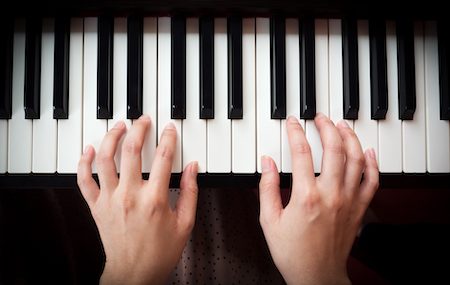What can hold you back from being an accomplished pianist? Are you worried you can’t excel at piano with small hands?
Let’s talk about another passion – basketball. Think players can’t excel if they are under 6 feet tall? Don’t tell that to Isaiah Thomas or Muggsy Bogues. They excelled at their sport even though many told them they would never achieve their dreams.
People assume that to be a great piano player, you need long, graceful fingers that can easily reach an octave or more. It may help some. But just like in basketball, hand size isn’t everything to excel at piano.
When the first piano was created, the inventor was a man. Bartolomeo Cristofori developed a harpsichord, and designed it for his own range of playing. Naturally, as additional pianos were created, they were developed using similar dimensions to compete. This became the standard over time.
As the years moved forward, other people created and upgraded the original harpsichord to what we have today. Vertical pianos, grand pianos, electric pianos – all are a modern day version of what was created hundreds of years ago.
While keyboards themselves don’t change in size, what does change is a piano player’s approach. Think child prodigies are held back because of their small fingers and hands?
It comes down to compensating for your differences, and learning what method is best for you to make it work.
If you’ve done a search looking for friendly tips on ways to conquer your holdbacks, put the advice aside. You’re researching it because you’re currently having a problem – a song that requires a big stretch between octaves, for example. Don’t panic. Instead, slow down and learn what it takes to move through the song. Develop it with your own flair.
It also helps to keep your wrist loose and relaxed. This will help your fingers move across the keys without straining your fingers or hand.
Learn some exercises to help your arms, hands, and fingers stay flexible. Always play a few scales for warm up. Shake your hands lightly. Flex your fingers, and gently pull them back.
Search out specific exercises to help you stay nimble and flexible. Work with an expert to ensure you do so without strain. You can even search out a teacher who has experience in helping people achieve their goals. Sometimes what’s holding you back the most is mindset, something a good teacher can help you overcome.
It’s human nature to look for the fastest way to success. For piano players, it should always be about playing at your best.
What tips do you have for mastering the art of playing the piano?


